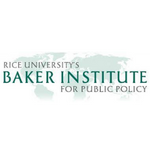by KENNETH B. MEDLOCK III | KEILY MILLER
Since mid-2019, the Center for Energy Studies at Rice University’s Baker Institute for Public Policy has convened a diverse group of stakeholders – consisting of corporations, industry special interest groups, academic institutions, and non-governmental organizations (NGOs) – to explore the deployment of carbon capture utilization and storage (CCUS) technologies in the state of Texas. The discussions revealed a number topics that policymakers and regulators in the state of Texas may need to consider for a robust CCUS industry to emerge. Given growing global concerns about CO2 emissions and climate change and the increasing number of firms across the energy industry as well as other industries who are committing to “net-zero” targets, the health of the Texas economy will be intimately linked to the ability of firms operating in the state to meet their stated goals.
The organizations that participated are recognized for their contributions to the working group discussions. Recognition does not convey attribution. Moreover, in no way should recognition for participation be deemed as endorsement or adoption of the recommendations and policy proposals herein. The research and recommendations herein are exclusively attributed to the authors. Participating organizations of the stakeholder working group, listed in alphabetical order, include: 8 Rivers; Air Liquide; Baker Hughes; BP; Calpine; Center for Energy Studies at Rice University’s Baker Institute; Center for Houston’s Future; Chevron; Clean Air Task Force; Cynthia and George Mitchell Foundation; Dow Inc.; Environmental Defense Fund; Gas Technology Institute; Greater Houston Partnership; Gulf Coast Carbon Center at the Bureau of Economic Geology, University of Texas at Austin; Houston Advanced Research Center; Kinder Institute for Urban Studies at Rice University; Kinder Morgan; Linde; OGCI; Port of Houston; Natural Resource Partners; NRG Energy; Occidental Petroleum; Phillips 66; Quintana Minerals; Repsol; Schlumberger; Sempra; Shell; Valero; US Business Council for Sustainable Development.
In this series of papers, the authors argue that Texas has a comparative advantage when it comes to implementing CCUS technologies, given the volume of CO2 emissions from industrial activity, the amount of oil and gas production, the scale of geologic storage potential, and the breadth of engineering and subsurface expertise in the state. Lawmakers and regulators can help facilitate the development of a robust CCUS industry in the state by addressing existing legal and regulatory uncertainties and by carefully considering pathways that can establish Texas as a leader in a low carbon energy future.
![]() expanding-ccus-in-texas-executive-summary
expanding-ccus-in-texas-executive-summary
Jan. 27, 2021, 4:03 p.m.
https://www.bakerinstitute.org/research/carbon-capture-texas/

